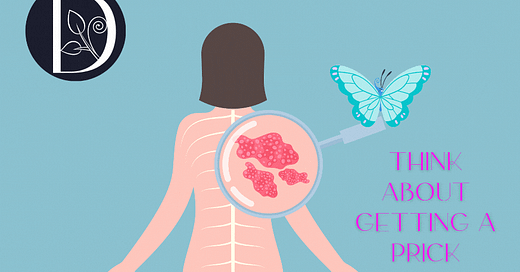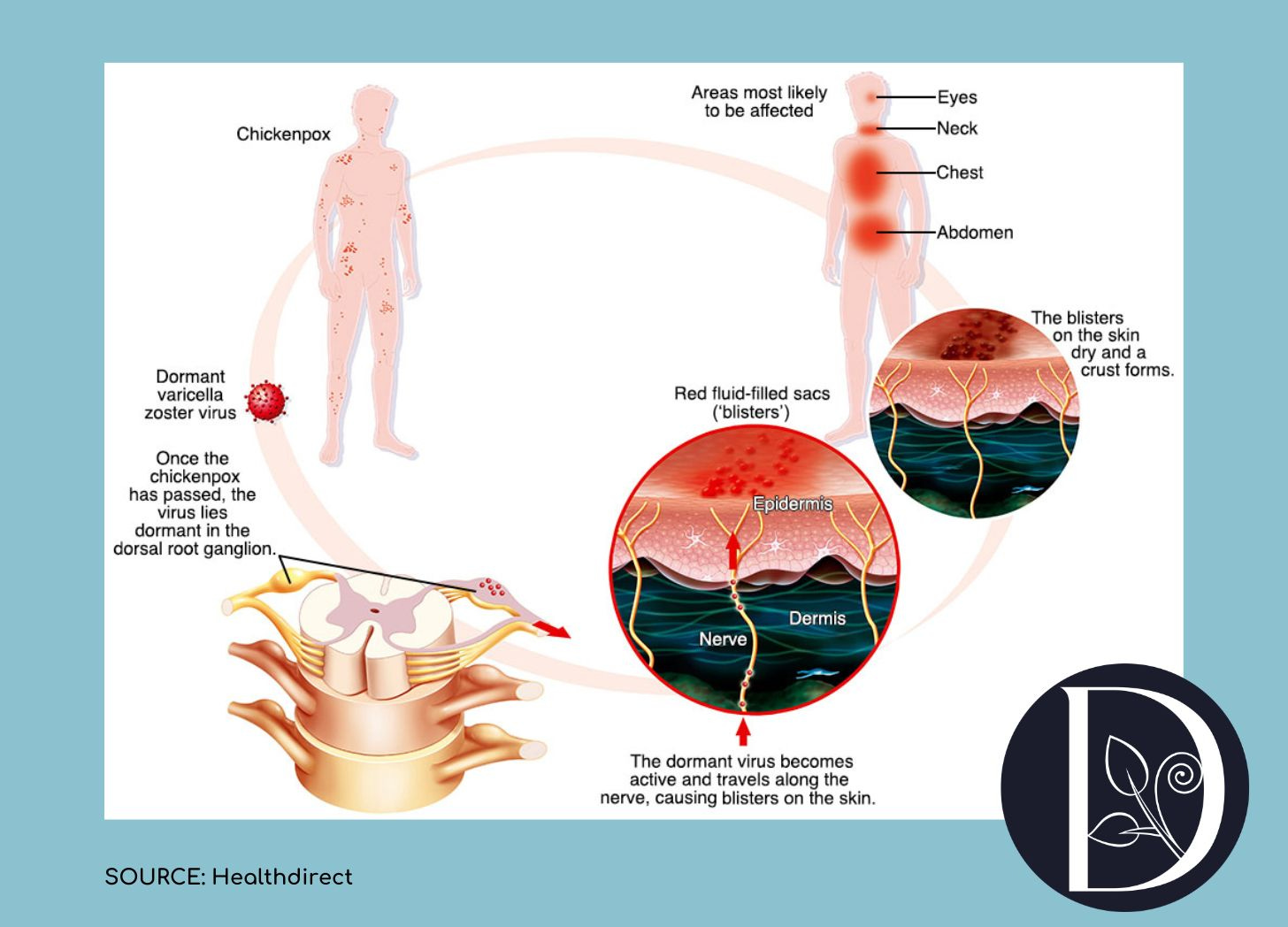Shingles, dementia and a vaccination worth overthinking about
That little prick vaccination might stop you losing your mind
Most Australians don’t yet realise that dementia is the biggest killer of Australian women.
That’s a Debbie Downer statement, right? But don’t click away just yet.
The shingles vaccine is linked with research showing it delays a dementia diagnosis.
There is rarely talk of vaccinations without controversy. But this is one damn good news story, if you ask me.
A study of more than 200,000 people showed the Shingrix vaccine led to a 17% reduction in dementia diagnoses in the 6 ensuing years after the shot, equating to 164 or more additional days lived without dementia.
And in Australia, Shingrix is recommended for everyone over the age of 50, so long as you’re happy to pay around $600 for the 2 doses.
If you’re over 65, you get Shingrix free. (What’s not to love about Medicare?)
Shingrix has replaced the older version of the shingles vaccine, and it’s delivered in 2 doses given 2 to 6 months apart in healthy people or 1 to 2 months apart in immunocompromised people.
Immunocompromised people with certain medical conditions and Aboriginal and Torres Strait Islander people can also get the vaccine free.
You don’t want to mingle with shingles
The minute I wrote about the free Shingrix vaccination for people over 65, I immediately booked in with the doctor to pay $300 for my first Shingrix dose.
You see, the second I heard about post-herpetic neuralgia, I went: GET THAT SHIT AWAY FROM ME. Nerve pain is agonising. I don’t want it. I don’t want it to come near me.
The Shingrix vaccination did make me feel slightly rotten. In fact, I had to take the next day off work because I felt so terrible. But I still think it was worth it.
Then, as if the Gods were smiling upon my overly cautious neuroticism, my uncle contracted shingles and nearly lost the sight in his eye.
Another good reason to pay $600 to prevent that awful disease. Who wants to be blind?
Shingles is one of those seemingly common illnesses that seems harmless … until it isn’t.
If you’ve had chicken pox, you can get shingles
One in 3 people will develop shingles in their lifetime. The risk of shingles increases with age, and is most common in those aged 60 and older.
You can even die of shingles. I mean, who knew?
Vaccinations aren’t just for little kids
There are actually a heap of vaccinations older people are supposed to know about, but probably don’t want to.
Most of us know about Covid vaccination (and we all pretty much had to get it) but the reality is that flu and whooping cough are also important to think about. If you’re doctor is nice, they might even give you a jelly bean for being brave.
Flu shots
The flu strains change every year, so the Australian Immunisation Handbook recommends getting an annual flu shot.
Who it’s recommended for: All adults.
How often: Once a year.
Who gets it free in their 50s? Aboriginal and Torres Strait Islander people and people with specific medical conditions.
Covid-19 boosters
While it might feel like the pandemic is behind us, COVID-19 can still cause severe illness and even death in older people and those with certain medical conditions.
Who it’s recommended for: Healthy adults should receive 2 doses for their primary course vaccination and people who are severely immunocompromised should get 3 doses. After that, booster doses are recommended for people with medical conditions that put them at risk of severe illness from COVID-19. Talk to your GP about whether a booster is right for you.
How often: Your doctor will recommend the right vaccination and booster schedule for your circumstances.
Who gets it free in their 50s? Everyone.
Pneumococcal needles
Pneumococcal disease is a bacterial infection that can cause everything from a mild ear infection to pneumonia and meningitis.
Who it’s recommended for: People with specific medical conditions and Aboriginal and Torres Strait Islander people.
How often: The dosage schedule varies depending on age and medical conditions, so ask your GP.
Who gets it free in their 50s? The same groups it’s recommended for.
Whooping cough injections
Whooping cough can lead to pneumonia, brain damage and even death. It’s especially dangerous for babies under six months old.
Who it’s recommended for: Anyone who will be around a young baby, including grandparents, should get a booster.
How often: Every 10 years.
Who gets it free in their 50s? No one.
Travel vaccinations
You should always check the Smart Traveller website and chat with your doctor to find out the best vaccinations for any destinations you plan to visit.
Who it’s recommended for: Anyone going overseas should have travel insurance and be up to date with vaccinations and boosters for the area they are travelling.
How often: Every time you travel overseas.
Who gets it free in their 50s? No one.







